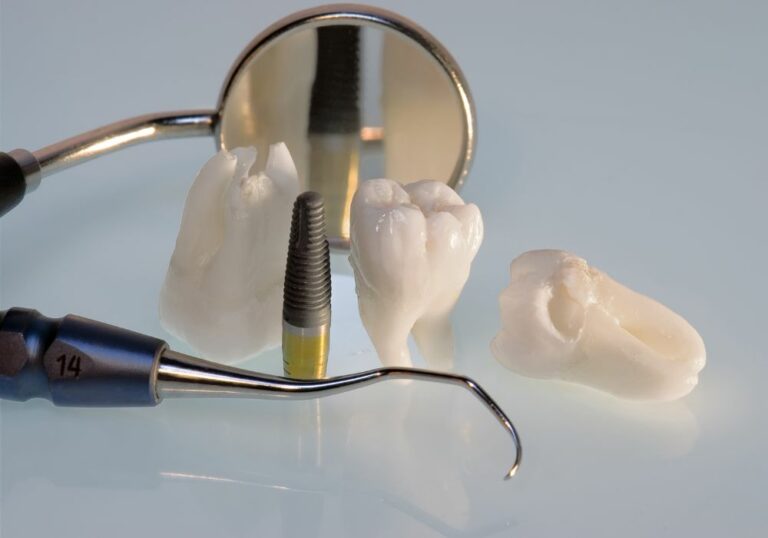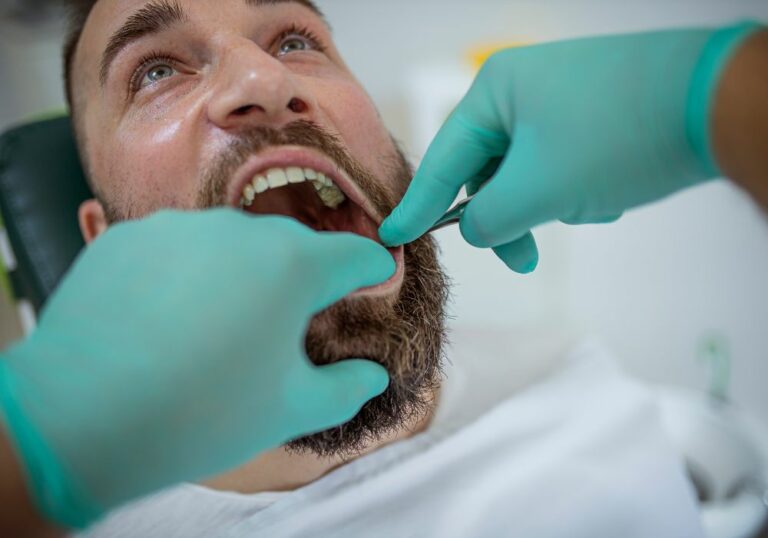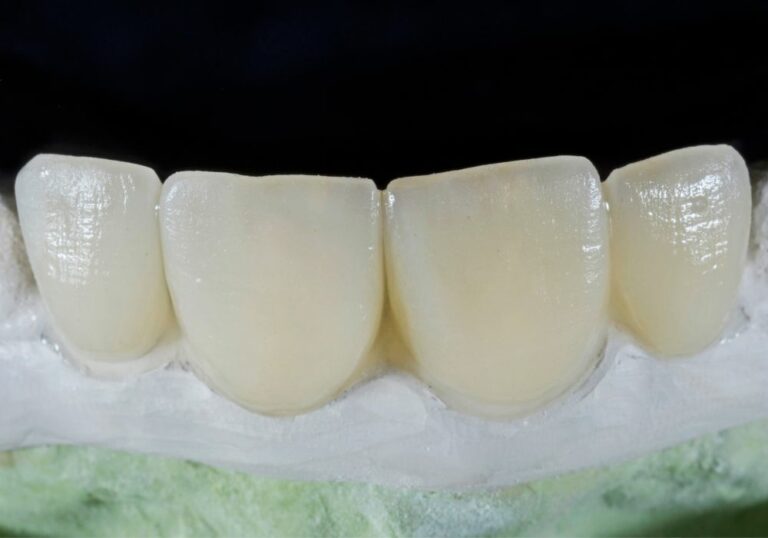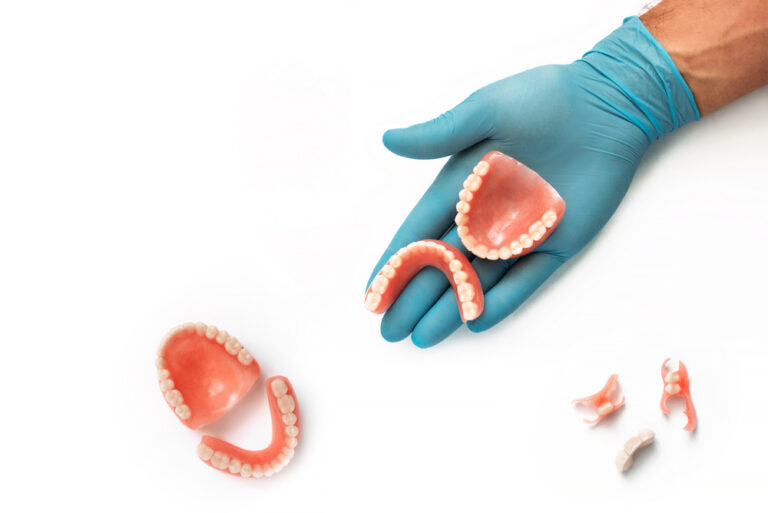Did you know that your teeth are not just important for chewing and smiling, but also for your overall health? Yes, that’s right! Your teeth can affect other parts of your body, and it’s important to understand how they are all connected. Your mouth is the entry point to your digestive and respiratory tracts, and some bacteria in your mouth can cause disease. However, good oral health care, such as daily brushing and flossing, can help keep bacteria under control.
When one of your teeth has an infection or disease, it can leak toxicities into the bloodstream and cause disease throughout your body. This is because the teeth are connected to energy highways in your body known as meridians. Disrupting the flow of energy along these meridians can affect the organs and tissues connected to them. Understanding the relationship between your teeth and other parts of your body can help you take better care of your oral and overall health.
So, the question remains – can your teeth affect other parts of your body? The answer is yes, and in this article, we will explore the connection between your teeth and other parts of your body. We will discuss how your teeth can affect your organs, the importance of good oral hygiene, and what you can do to maintain healthy teeth and gums. Let’s get started!
Oral Health and General Health: An Overview
Your oral health is an important aspect of your overall health. It is not just about having healthy teeth and gums, but also about preventing other health problems that can be caused by poor oral hygiene. Your mouth is a window to the rest of your body and can provide clues about your general health.
Research has shown that there is a link between oral health and general health. Poor oral health can lead to various health problems, such as heart disease, stroke, diabetes, and respiratory infections. It can also affect pregnancy and childbirth outcomes.
The following table shows some of the health problems that are linked to poor oral health:
| Health Problem | How Poor Oral Health Can Affect It |
|---|---|
| Heart Disease | Oral bacteria can enter the bloodstream and cause inflammation in the blood vessels, increasing the risk of heart disease. |
| Stroke | Oral bacteria can also cause blood clots that can lead to a stroke. |
| Diabetes | Gum disease can make it harder to control blood sugar levels, making diabetes worse. |
| Respiratory Infections | Oral bacteria can be inhaled into the lungs, causing infections such as pneumonia. |
| Pregnancy and Childbirth Outcomes | Gum disease in pregnant women has been linked to premature birth and low birth weight babies. |
Maintaining good oral health is essential to your overall health and well-being. It involves brushing your teeth twice a day, flossing daily, and visiting your dentist regularly for check-ups and cleanings. By taking care of your oral health, you can reduce your risk of developing other health problems and improve your quality of life.
Heart Disease and Oral Health
Maintaining good oral health is important not just for your teeth and gums but also for your overall health. Studies have shown that poor oral health, such as gum disease or tooth loss, can lead to an increased risk of cardiovascular problems like heart attack or stroke.
Inflammation and Infections
Poor oral health can lead to inflammation and infections which can cause damage to your blood vessels, increasing the risk of heart disease. Inflammation in the body can cause the buildup of fatty deposits in the arteries, which can lead to atherosclerosis, a condition where the arteries become narrow and hardened. This can increase the risk of heart attack and stroke.
Endocarditis Risk
Another way poor oral health can affect your heart health is through the risk of endocarditis. This is an infection of the inner lining of your heart chambers or valves that typically occurs when bacteria or other germs from another part of your body, such as your mouth, spread through your bloodstream and attach to certain areas in your heart. People with gum disease or other oral infections are at a higher risk of developing endocarditis.
Maintaining good oral hygiene, such as brushing and flossing daily, can help prevent gum disease and other oral infections. Regular dental check-ups can also help detect and treat any oral health problems early on. Taking care of your oral health can help reduce the risk of heart disease and other health problems.
Oral Health and Diabetes

If you have diabetes, you may be more prone to oral health problems. Taking good care of your teeth and gums is essential to prevent these problems from getting worse. Here are some ways that oral health and diabetes are connected:
Gum Disease and Blood Sugar Control
People with diabetes are more likely to have gum disease, which can make it harder to control blood sugar levels. Gum disease is a bacterial infection that affects the tissues surrounding your teeth, leading to inflammation, bleeding, and bone loss. When your gums are inflamed, it can make it harder for insulin to work properly, which can raise your blood sugar levels. Conversely, high blood sugar levels can make it easier for bacteria to grow in your mouth, which can worsen gum disease.
To prevent gum disease, it’s important to brush your teeth twice a day, floss daily, and visit your dentist regularly. Your dentist may recommend additional cleanings or treatments to help manage gum disease.
Oral Infections and Insulin Resistance
Oral infections, such as thrush, can also affect people with diabetes. Thrush is a fungal infection that can cause white patches in your mouth, as well as soreness and difficulty swallowing. People with diabetes are more prone to thrush because high blood sugar levels can create a favorable environment for fungal growth.
In addition to thrush, people with diabetes may be more prone to other oral infections, such as periodontitis and dental abscesses. These infections can cause pain, swelling, and even tooth loss if left untreated. Oral infections can also lead to insulin resistance, which can make it harder to control blood sugar levels.
To prevent oral infections, it’s important to maintain good oral hygiene and visit your dentist regularly. If you notice any signs of an oral infection, such as pain or swelling, contact your dentist right away. Your dentist may recommend antibiotics or other treatments to help manage the infection.
Respiratory Conditions Linked to Oral Health
Oral health is closely linked to the health of other parts of your body, including your respiratory system. The bacteria in your mouth can travel to your lungs and cause respiratory infections. In this section, we will explore the link between oral health and respiratory conditions.
Oral Bacteria and Pneumonia
As per Mayo Clinic, the bacteria that cause periodontitis can enter your bloodstream through gum tissue, possibly affecting other parts of your body, including your lungs. This bacterial infection can cause pneumonia, a serious respiratory condition that can be life-threatening, especially for older adults and people with weakened immune systems.
Gum Health and Chronic Obstructive Pulmonary Disease
According to the American Thoracic Society, gum disease can also contribute to chronic obstructive pulmonary disease (COPD), a lung disease that makes it difficult to breathe. The bacteria from gum disease can travel to your lungs, causing infections and inflammation that can worsen COPD symptoms.
Maintaining good oral hygiene, such as brushing twice a day, flossing daily, and visiting your dentist regularly, can help prevent the buildup of harmful bacteria in your mouth. If you have a respiratory condition, it’s essential to inform your dentist so that they can take appropriate precautions during your dental treatment.
In conclusion, taking care of your oral health is crucial for maintaining good overall health, including your respiratory system. By practicing good oral hygiene habits and seeking professional dental care, you can reduce your risk of developing respiratory conditions linked to oral health.
Oral Health and Pregnancy

Maintaining good oral health during pregnancy is important for both the mother and the baby. Pregnancy can affect your oral health, and poor oral health can have negative effects on pregnancy outcomes. Here are some things to keep in mind to ensure good oral health during pregnancy.
Gum Disease and Preterm Birth
Gum disease is a common condition among pregnant women. It is an infection of the gums caused by the buildup of plaque on the teeth. Nearly 60 to 75% of pregnant women have gingivitis, an early stage of periodontal disease that occurs when the gums become red and swollen from inflammation that may be aggravated by changing hormones during pregnancy.
If left untreated, gum disease can lead to more serious periodontal disease. This can cause the bone that supports the teeth to be lost, and the gums can become infected. Studies have shown that pregnant women with gum disease are at higher risk of preterm birth and low birth weight.
To prevent gum disease during pregnancy, it is important to maintain good oral hygiene. This includes brushing your teeth twice a day, flossing daily, and visiting your dentist regularly for cleanings and checkups.
Oral Infections and Low Birth Weight
Oral infections during pregnancy can also have negative effects on pregnancy outcomes. One of the most common oral infections is dental caries, also known as cavities. If left untreated, dental caries can lead to more serious infections.
Studies have shown that pregnant women with untreated dental caries are at higher risk of delivering a low birth weight baby. This is because the bacteria that cause dental caries can enter the bloodstream and affect the developing fetus.
To prevent oral infections during pregnancy, it is important to maintain good oral hygiene and visit your dentist regularly for cleanings and checkups. If you have any dental problems, such as cavities or gum disease, it is important to get them treated as soon as possible to prevent further complications.
Oral Health and Osteoporosis
When it comes to oral health, there are many factors that can impact the health of your teeth and gums. One of these factors is osteoporosis, which is a condition that causes bones to become weak and brittle. While osteoporosis primarily affects the bones in your body, it can also have an impact on your teeth and overall oral health.
Bone Loss in Jaw
Osteoporosis can cause bone loss in the jaw, which can lead to a number of problems. When the bone in your jaw becomes weak, it can no longer support your teeth properly. This can cause your teeth to become loose and even fall out. In addition, bone loss in the jaw can also lead to changes in the shape of your face and jawline.
Tooth Loss and Bone Density
Research has shown that there is a link between osteoporosis and tooth loss. People with osteoporosis may be more likely to experience tooth loss than those without the condition. This is because the bone loss that occurs with osteoporosis can also affect the bone that supports your teeth.
To prevent tooth loss and other oral health problems associated with osteoporosis, it’s important to take steps to maintain good bone density. This includes getting enough calcium and vitamin D, exercising regularly, and avoiding smoking and excessive alcohol consumption.
In addition to these lifestyle changes, there are also treatments available for osteoporosis that can help to slow or even reverse bone loss. These treatments include medications that can help to increase bone density and reduce the risk of fractures.
Overall, maintaining good oral health is an important part of maintaining your overall health and well-being. By taking steps to prevent and treat osteoporosis, you can help to protect your teeth and maintain a healthy smile for years to come.
Preventing Health Issues Through Dental Care

Taking care of your dental health is not only important for your teeth and gums but also for your overall health. By practicing good oral hygiene habits and scheduling regular dental check-ups, you can prevent health issues that can arise from poor dental health.
Regular Dental Check-ups
Regular dental check-ups are essential to maintaining good oral health. During these check-ups, your dentist can identify any potential issues before they become serious problems. They can also provide you with recommendations for improving your oral hygiene routine.
It is recommended that you visit your dentist at least once every six months. However, if you have a history of dental issues or are experiencing any dental problems, your dentist may recommend more frequent visits.
Good Oral Hygiene Practices
Practicing good oral hygiene habits is crucial to preventing health issues that can arise from poor dental health. Here are some tips for maintaining good oral hygiene:
- Brush your teeth twice a day with fluoride toothpaste
- Floss daily to remove food particles and plaque from between your teeth
- Use mouthwash to kill bacteria and freshen your breath
- Limit sugary and acidic foods and drinks
- Drink plenty of water to help flush out bacteria and prevent dry mouth
By following these tips and scheduling regular dental check-ups, you can prevent health issues that can arise from poor dental health. Remember, taking care of your teeth and gums is not just about having a beautiful smile, it’s about protecting your overall health.
Frequently Asked Questions
How can poor dental health impact your overall health?
Your dental health can have a significant impact on your overall health. Poor oral hygiene can lead to tooth decay, gum disease, and other dental problems. These issues can cause pain, discomfort, and difficulty eating, which can lead to malnutrition and other health problems. Additionally, bacteria from the mouth can travel through the bloodstream and affect other parts of the body.
What are the potential consequences of untreated tooth infections?
Untreated tooth infections can be dangerous and even life-threatening. Infections can spread to other parts of the body, including the jaw, neck, and brain. In severe cases, untreated infections can lead to sepsis, a potentially deadly condition that can cause organ failure.
What is the connection between gum disease and heart disease?
Research has shown that there is a connection between gum disease and heart disease. The bacteria that cause gum disease can enter the bloodstream and cause inflammation in the arteries. This inflammation can lead to atherosclerosis, a condition in which the arteries become narrowed and hardened, increasing the risk of heart attack and stroke.
Can dental issues lead to stomach problems or digestive issues?
There is some evidence to suggest that dental issues can contribute to stomach problems and digestive issues. For example, if you have missing or damaged teeth, you may have difficulty chewing your food properly. This can lead to digestive problems and nutritional deficiencies.
How can dental health impact the immune system?
Poor dental health can weaken the immune system, making it harder for your body to fight off infections. Bacteria from the mouth can enter the bloodstream and cause inflammation throughout the body. This can lead to a weakened immune system and an increased risk of infections.
What are the risks of untreated dental problems spreading to other parts of the body?
Untreated dental problems can lead to serious health problems, including infections in other parts of the body. For example, if you have an untreated tooth infection, the bacteria can spread to the jaw, neck, and brain. This can lead to serious complications, including sepsis and brain abscesses. It is important to seek dental care as soon as possible if you have any dental problems.






